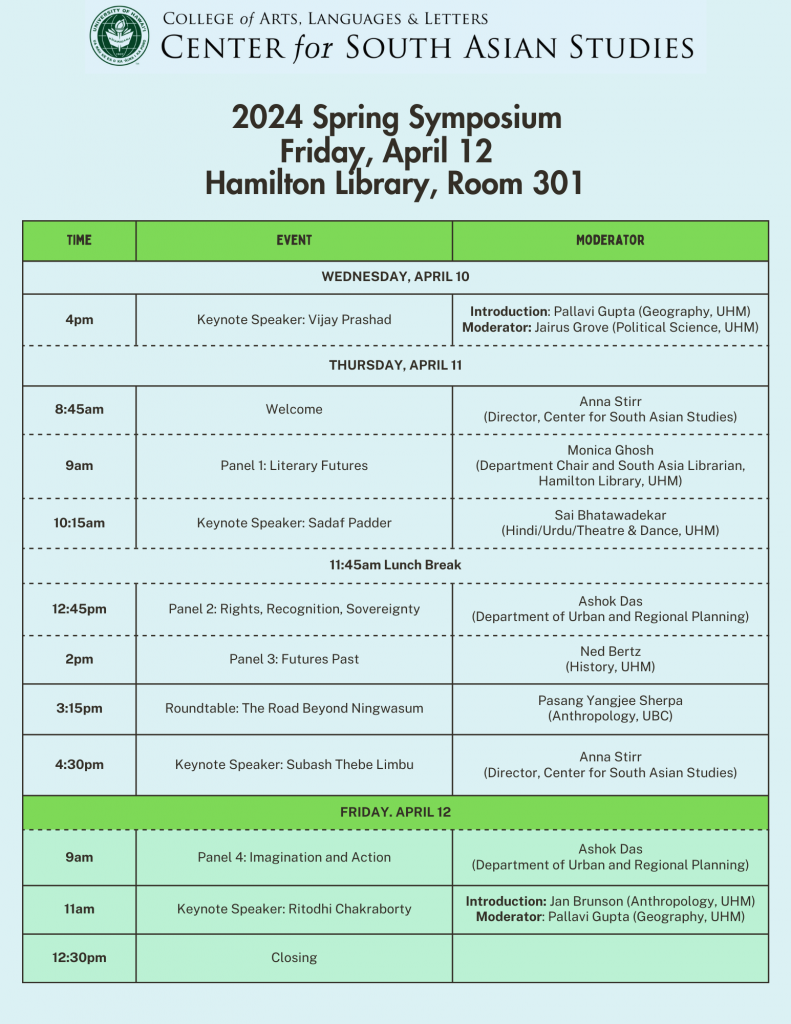
CSAS Spring Symposium
Friday, April 12 Schedule
Hamilton Library, Room 301

Keynote Speaker:
Ritodhi Chakraborty
Moderator: Dr. Pallavi Gupta (Geography and Environment)
Friday, April 12 at 11am
Hamilton Library, Room 301
Ritodhi Chakraborty, Geographer
Bio: “I am a political ecologist and interdisciplinary social scientist that collaborates with indigenous and agrarian communities to explore pathways of environmental and social justice. For the past decade, I have worked with various universities, think-tanks, public and civil society institutions in United States, India, Bhutan, China and Aotearoa New Zealand on issues of plural knowledges, environmental and social justice, rural transformation, youth subjectivities, climate change and agriculture.”
Abstract: In 2014 economist Kate Raworth asked, “Must the Anthropocene, be a (M)Anthropocene?” She was referring to the overrepresentation of men in the Anthropocene Working Group and to a variety of other committees and gatherings examining, exploring and giving voice to our current age. A decade since this self-evident question, have things really changed? Elite (white, upper caste, university educated, wealthy, from the Global North) men still control the production and application of knowledge about the Anthropocene, despite significant challenges to their hegemony. One such challenge presents the idea of ‘Ecological Masculinity’ 1 . Arguing for a system of being and action which emerge from an ethic of ecological stewardship and care, eschewing both industrial and ecomodernist masculinities. My work explores the promises and pitfalls of this framing in the Indian Himalayas. Working through more than a decade of engagement with rural communities in Uttarakhand state, using feminist and radical epistemic perspectives, I draw upon interviews, oral histories, visual ethnographies, social media data, surveys and participatory mapping to ask the following questions: Is Ecological Masculinity a sustainable & inclusive response to the (M)Anthropocene? Does it support or challenge historical (ongoing) mobilizations towards environmental and social justice in the region? What are the ways in which the production of regional climate knowledge, mirror the existing intersections of caste and elite/non-elite patriarchy? Can Ecological masculinity be wielded to address the structures of the Himalayan (M)Anthropocene? If not, then what are its conceptual and material limits and can (should) they be transgressed?

For more information about keynotes, panels, and schedule visit: https://southasiasymposium2024.wordpress.com/
